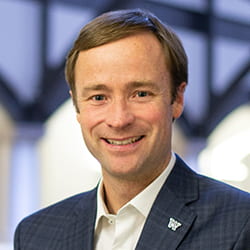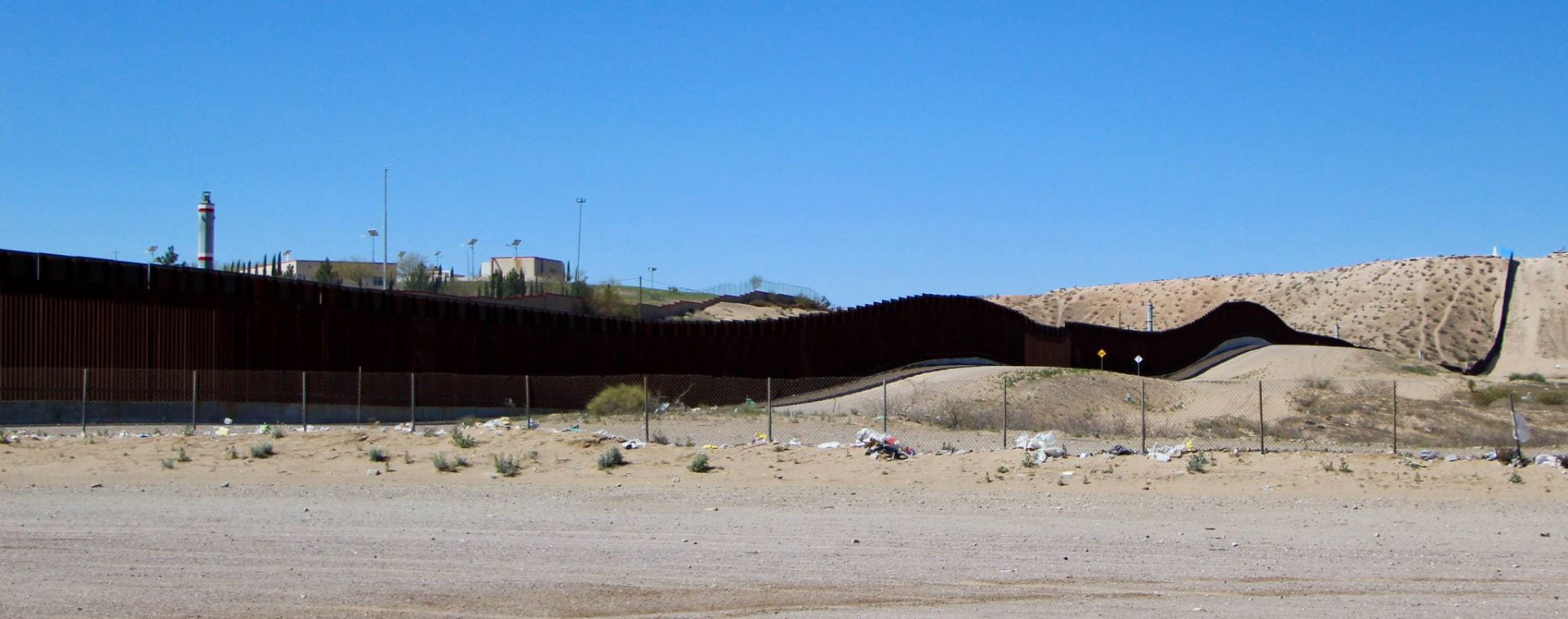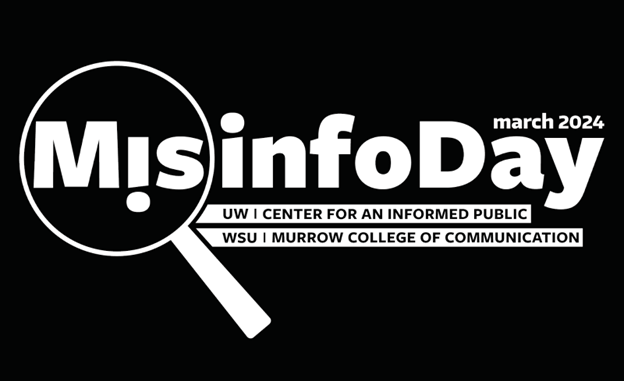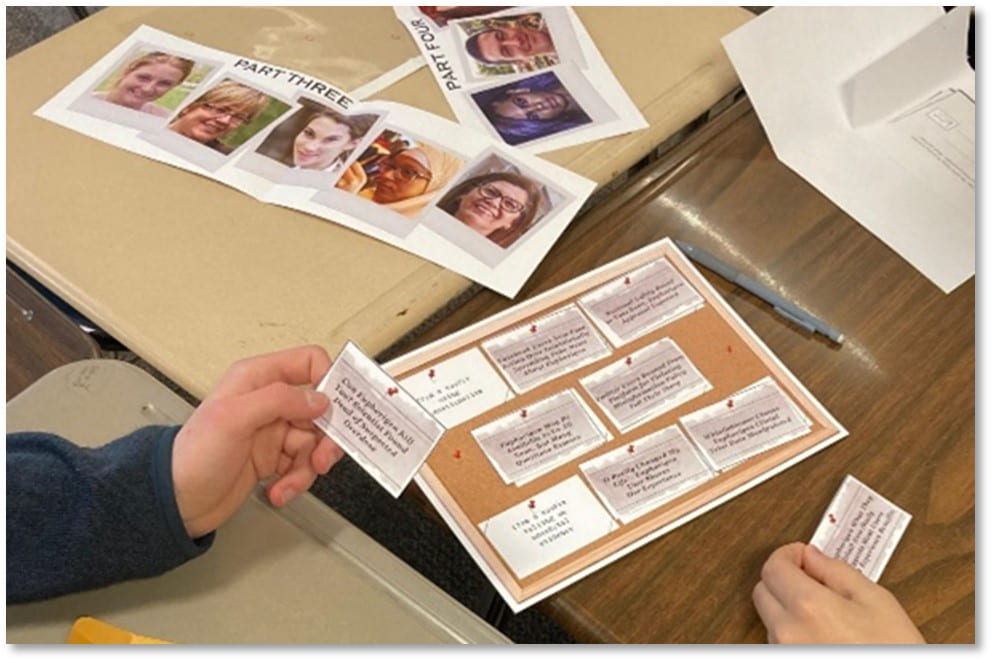Our mission is to resist strategic misinformation, promote an informed society, and strengthen democratic discourse.
RESEARCH
A boosted video resonates with ‘border crisis’ and ‘rigged election’ frames
03.14.2024
In a 2024 U.S. Elections Rapid Research blog post, a team of CIP-affiliated researchers present a multi-dimensional analysis — across source, content, and spread — of a single misleading video that connects the border crisis to concerns with election integrity. Mert Can Bayar, Ashlyn B. Aske, Nina Lutz, Joseph S. Schafer, Stephen Prochaska and Kate Starbird show how the video spread across social media platforms with help from a set of “new elite” influencers on Twitter/X, explore the history of the video’s producer and demonstrate how he adapted his content to attract an audience that rewarded him for resonating with these political narratives.
Previous CIP rapid research and analysis:
- With little anxiety about Trump’s primary prospects, Republican conspiracy theories pivot to New Hampshire’s Democratic results | 01.26.2024
- The rumoring that wasn’t: A large margin for Trump in Iowa puts a damper on election rumoring | 01.17.24
- Examining an early election conspiracy theory taking shape in Iowa | 01.14.2024
- The ‘new elites’ of X: Identifying the most influential accounts engaged in Hamas/Israel dialogue | 10.20.2023
- YouTube search surfaces good information about the Lahaina wildfire on Maui, but external links reveal a different world | 08.31.2023
Search engines post-ChatGPT: How generative artificial intelligence could make search less reliable
02.18.2024
University of Washington Information School doctoral student Shahan Ali Memon and iSchool associate professor Jevin D. West, a CIP co-founder, explore how generative artificial intelligence could reduce the reliability of search engines. As they write, generative AI “carries an unwarranted sense of credibility, while decreasing transparency and sourcing ability,” while “search engines are already answering queries with error-laden, generated content, further blurring the provenance of information and impacting the integrity of the information ecosystem.”
Can provenance save us from a barrage of synthetic media?
02.21.2024
Through work with the Coalition for Content Provenance and Authenticity (C2PA), a team of UW researchers, Human-Centered Design & Engineering PhD student Kevin Feng, Allen School of Computer Science & Engineering PhD student Jina Yoon and CIP faculty member Amy X. Zhang, found that provenance can help better calibrate trust and accuracy perceptions of media. But it can come with its own risks of misinterpretation.
INSIGHTS
CIP’s Jevin West explores ‘generative misinformation’ in UW Office of Public Lectures event at Town Hall Seattle
EDUCATION & ENGAGEMENT | 10.27.2023
In a UW Graduate School Office of Public Lectures 2023-24 series event at Town Hall Seattle, CIP co-founder Jevin West, an iSchool associate professor, explores how generative AI will make it more challenging to address the challenges we face from the spread of misinformation.
- WATCH | UW Public Lecture: ‘Generative Misinformation’ with Jevin West
- LECTURE HIGHLIGHTS | The power, potential and pitfalls of generative AI technology
- RELATED | Jevin West in The Seattle Times: ‘The chatbot era: Better or worse off?’
- 11.02.2023 EVENT | CIP’s Ryan Calo discusses ‘Misinformation, AI and the Rule of Law’ in UW Impact webinar
EDUCATION
High school students from across Washington to participate in MisinfoDay 2024 workshops and activities
EVENTS | MARCH 2024
Through an ongoing statewide partnership between the University of Washington’s Center for an Informed Public and Washington State University’s Edward R. Murrow College of Communication, we’re presenting MisinfoDay 2024 events and programming in March for high school students, teachers, librarians, and other educators. In addition to hosting three in-person events for high school students at WSU Pullman (March 8), UW Seattle (March 12), and WSU Vancouver (March 21), teachers and librarians have an option to host MisinfoDay 2024 activities in their own classrooms.
- Learn more about MisinfoDay 2024
- 03.21.2024 | National Public Radio report features MisinfoDay 2024: ‘AI images and conspiracy theories are driving a push for media literacy education’
- 03.31.2024 | CIP’s Liz Crouse shares MisinfoDay 2024 lessons in The Seattle Times
- 04.04.2024 | Education Week video feature: Why this teacher uses aliens to teach media literacy
Break-free in a misinformation themed escape room
RESOURCES
Loki’s Loop games, including the Euphorigen Investigation, immerse people in an interactive escape room of manipulated media, social media bots, deepfakes, and other forms of deception to learn about misinformation. These games, a research project from the University of Washington’s Center for an Informed Public in partnership with the UW Technology & Social Change Group, UW GAMER Research Group and Puzzle Break, are designed to improve people’s awareness of misinformation tactics and generate reflection on the emotional triggers and psychological biases that make misinformation so powerful. Loki’s Loop games are available for libraries, schools, and organizations with an educational mission, in both online and in-person versions.
CIP Updates
- EVENTS | CIP’s Mert Can Bayar to discuss election rumors, conspiracy theories and democracy in UW Impact webinar | Event is 05.02.2024
- INSIGHTS | AFP interviews CIP’s Mert Can Bayar about ‘zombie’ misinformation targeting Americans | 04.23.2024
- NEWS | Read the most recent edition of the CIP News & Insights newsletter | 04.11.2024
- NEWS | KING5-TV interviews CIP’s Jevin West about local candidate targeted by fake email scam | 05.15.2024
- EDUCATION | Education Week features video report on MisinfoDay 2024 at UW Seattle | 04.04.2024
- EDUCATION | CIP’s Liz Crouse shares MisinfoDay lessons in The Seattle Times | 03.31.2024
- RESEARCH | Learn more about the Center for an Informed Public’s election research in 2024 | 03.23.2024
- EDUCATION | NPR features MisinfoDay 2024 activities at UW Seattle | 03.21.2024
- INSIGHTS | Oregon Public Broadcasting interviews CIP’s Rachel Moran-Prestridge about misinformation and Instagram influencers | 03.19.2024
- RAPID RESEARCH BLOG | A boosted video resonates with ‘border crisis’ and ‘rigged election’ frames | 03.14.2024
- INSIGHTS | PolitiFact interviews CIP’s Jevin West about the Princess Kate photo manipulation controversy | 03.12.2024
- RESEARCH | American Scientist republishes “Rumors have rules” by CIP’s Emma Spiro and Kate Starbird | 03.07.2024
- RESOURCES | Can you spot a scam? Whatcom County Library System, in partnership with CIP researchers, launch digital quizzes | 02.25.2024
- RESEARCH | Can provenance save us from a barrage of synthetic information? | 02.21.2024
- INSIGHTS | CIP’s Jevin West discusses OpenAI’s text-to-video tool in KUOW interview | 02.21.2024
- RESEARCH | Search engines post-ChatGPT: How generative artificial intelligence could make search less reliable | 02.18.2024
- INSIGHTS | CIP researchers discuss examination of ‘new elites’ on Twitter/X engaged in Hamas/Israel discourse during UW Jackson School event | 02.13.2024
- PEOPLE | CIP appoints 5 new faculty members, from UW Communication, Geography, Global Health, iSchool and Philosophy | 02.12.2024
- INSIGHTS | The Atlantic interviews CIP’s Mike Caulfield about “evidence maximalism” | 02.08.2024
- PEOPLE | Rachel Moran-Prestridge promoted to CIP senior research scientist | 01.31.2024
- RESEARCH | Nature: Faced with data restrictions and harassment, researchers are mapping out fresh approaches to studying social media’s political reach | 01.31.2024
- ESSAY | Our field was built on decades-old bodies of research across a range of disciplines. It wasn’t invented by a ‘class of misinformation experts’ in 2016. | 01.24.2024
- RESEARCH | Untangling abortion myths and its impacts on abortion providers | 01.23.2024
- NEWS | NBC News: Disinformation poses an unprecedented threat in 2024 — and the U.S. is less ready than ever | 01.18.2024
- 2024 RAPID RESEARCH BLOG | A large margin for Trump in Iowa puts a damper on election rumoring | 01.17.2024
- RESEARCH | New paper explores the risk of nationalist governance capture in self-governed Wikipedia projects | 01.17.2024
- 2024 RAPID RESEARCH BLOG | Examining an early election conspiracy theory taking shape in Iowa | 01.14.2024
- JOBS | UW School of Law seeks acting or visiting asst. professor who would serve as a CIP resident legal fellow | 01.10.2024
- INSIGHTS | KUOW Public Radio interviews CIP’s Mike Caulfield, co-author of Verified: How to Think Straight, Get Duped Less, and Make Better Decisions on What to Believe Online | 01.03.2024
- RESEARCH | Check out our peer-reviewed publications work from 2023 | 12.22.2023
- NEWS | Read the CIP’s News & Insights newsletter | 12.14.2023
- RESEARCH | Social truth queries: Development of a new user-driven intervention for countering online misinformation | 12.13.2023
- INSIGHTS | Sociology informed by information science: A discussion with Francesca Bolla Tripodi, winner of the 2023 CIP Award for Impact & Excellence | 12.11.2023
- RESEARCH | Facts, frames, and (mis)intepretations: Understanding rumors as collective sensemaking | 12.06.2023
- POLICY | CIP’s Mike Caulfield and Jevin West present during Washington State Senate Early Learning and K-12 Education Committee meeting | 12.05.2023
- INSIGHTS | Advertiser influence and platform accountability: The X dilemma | 12.04.2023
- JOBS | CIP seeks applications for up to 2 postdoctoral scholars | 11.16.2023
- EDUCATION | With new IMLS grant, CIP researchers start work to create a comprehensive information literacy program for public libraries | 11.07.2023
- RESEARCH | “The new Twitter is changing rapidly — study it before it’s too late,” CIP’s Mike Caulfield writes in Nature | 11.07.2023
- EVENTS | CIP’s Ryan Calo discusses “Misinformation, AI and the Rule of Law” during UW Impact webinar | 11.02.2023
- INSIGHTS | In UW Public Lectures event, CIP’s Jevin West discusses generative misinformation | 11.01.2023
- NEWS | The Atlantic cites CIP rapid research report in article on ‘Elon Musk’s unrecognizable app’ | 11.01.2023
- NEWS | CIP’s Mike Caulfield interviewed by WNYC’s “On the Media” | 10.28.2023
- NEWS | NBC News: 7 influential accounts are warping Israel-Hamas news on X, researchers find | 10.20.2023
- RAPID RESEARCH | The ‘new elites’ of X: Identifying the most influential accounts engaged in Hamas/Israel dialogue | 10.20.2022
- NEWS | CIP’s Mike Caufield interviewed by The Washington Post about dubious X content about Israel-Hamas conflict | 10.8.2023
- RESEARCH | Seattle Times op/ed: Misinformation researchers at UW will not buckle under political attacks | 10.06.2023
- RESEARCH | In Science Advances, CIP researchers examine selective and deceptive quotation of scientific work | 10.02.2023
- PEOPLE | CIP welcomes two new postdoctoral scholars, Mert Can Bayar and Yiwei Xu | 09.25.2023
- NEWS | In Lawfare article, CIP’s Kate Starbird writes about a ‘battle for better information’ | 09.18.2023
- CIP RAPID RESEARCH | YouTube search surfaces good information about the causes of the Lahaina Fire, but external links reveal a different world | 08.31.2023
- INSIGHTS | CNN Business interviews CIP’s Jevin West about ‘hallucinations’ from generative AI | 08.29.2023
- NEWS | CIP’s Carl Bergstrom quoted in Los Angeles Times column on scientists giving up on Twitter | 08.25.2023
- INSIGHTS | CIP’s Kate Starbird: With generative AI, we’re ‘entering a period where we’re going to get higher-quality disinformation and propaganda’ | 08.01.2023
- EDUCATION | In Seattle Times article, CIP’s Rachel Moran-Prestridge explores how local information providers can cultivate curiosity to build community trust | 07.28.2023
- INSIGHTS | WA Health Secretary Umair Shah speaks with CIP’s Kate Starbird in a Public Health Connects conversation | 07.26.2023
- RESEARCH | Exploring dynamics of how misinformation spreads within Vietnamese diasporic communities in the United States (Tiếng Việt) | 07.20.2023
- RESEARCH | Imagining participatory design approaches to misinformation-related research | 07.17.2023
- NEWS | In Axios, CIP’s Kate Starbird shares 3 ways AI will turbocharge misinformation | 07.10.2023
- EDUCATION | Educators gather for FinnishED workshop in Seattle | 07.07.2023
- RESEARCH | In Nature Medicine article, CIP’s Carl Bergstrom and Jevin West write about how publishers can fight misinformation in and about science | 07.07.2023
- EDUCATION | Can libraries hold our information landscape together? | 07.06.2023
- RESEARCH | Learn more about our 2023 CIP Award for Impact & Excellence winner: UNC’s Francesca Bolla Tripodi | 06.20.2023
- NEWS | CIP researcher Sukrit Venkatagiri interviewed by The Washington Post about Reddit blackout | 06.14.2023
- LAW & POLICY | New Washington state law requires clear disclosures for ‘deepfakes’ in election media | 06.09.2023
- INSIGHTS | KNKX Public Radio interviews CIP’s Jevin West about sorting fake from real in a world with AI-generated images | 05.24.2023
- RESEARCH | In Atlantic feature, Eli Sanders investigates Nextdoor’s election misinformation problem | 05.24.2023
- RESEARCH | CIP researchers awarded UW Population Health Initiative Tier 1 pilot grant | 05.24.2023
- NEWS | CIP’s Kate Starbird honored with UW College of Engineering faculty award for research | 05.22.2023
- EVENTS | Watch our recent workshop series, “Think more, share less: Mini MisinfoDay,” co-presented by UW and WSU | 05.16.2023
- INSIGHTS | Seattle Times features Issues in Science and Technology article co-authored by CIP’s Emma Spiro and Kate Starbird on assessing rumors | 05.12.2023
- RESEARCH | Participatory disinformation, deep stories and catalyzing action during the 2020 U.S. elections | 04.26.2023
- MORE NEWS >

“It’s one of the most important problems of our time that we as a society need to solve. This is not a left or right issue. This is an issue that transcends political boundaries. Everyone wants to get this right.”
— Jevin West, Co-Founder and Inaugural Director
CONFRONTING MISINFORMATION
The spread of misinformation is among the most pressing challenges of our time. New platforms for human interaction and information sharing have opened the door to misinformation, disinformation and other forms of networked manipulation, which not only mislead and create divisions, but also diminish trust in democratic institutions such as science and journalism. The nonpartisan Center for an Informed Public at the University of Washington brings diverse voices from across industry, government, nonprofits and other institutions together to confront the problem through our research, education, policy and engagement efforts. Learn More
WHAT WE DO
RESEARCH
We support cutting-edge research with a strong focus on research to practice, which spans disciplines from sociology to information science and law.
EDUCATION
We educate information consumers across the demographic landscape in order to make more informed decisions.
LAW & POLICY
We address information policy through generative analyses of the legal frameworks and the available levers for intervention.
ENGAGEMENT
We engage directly with the public in collaboration with our partners, libraries and community leaders.



